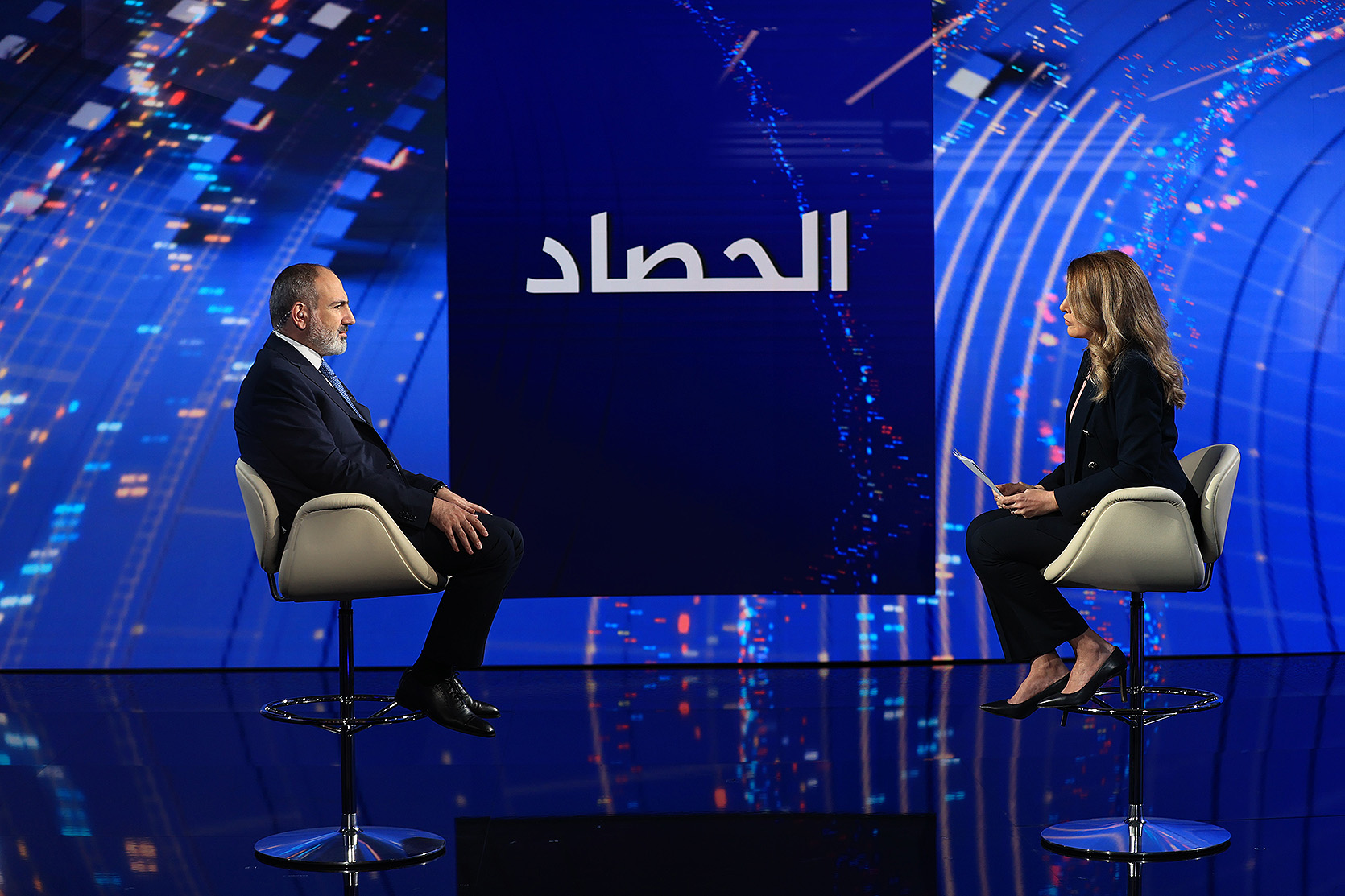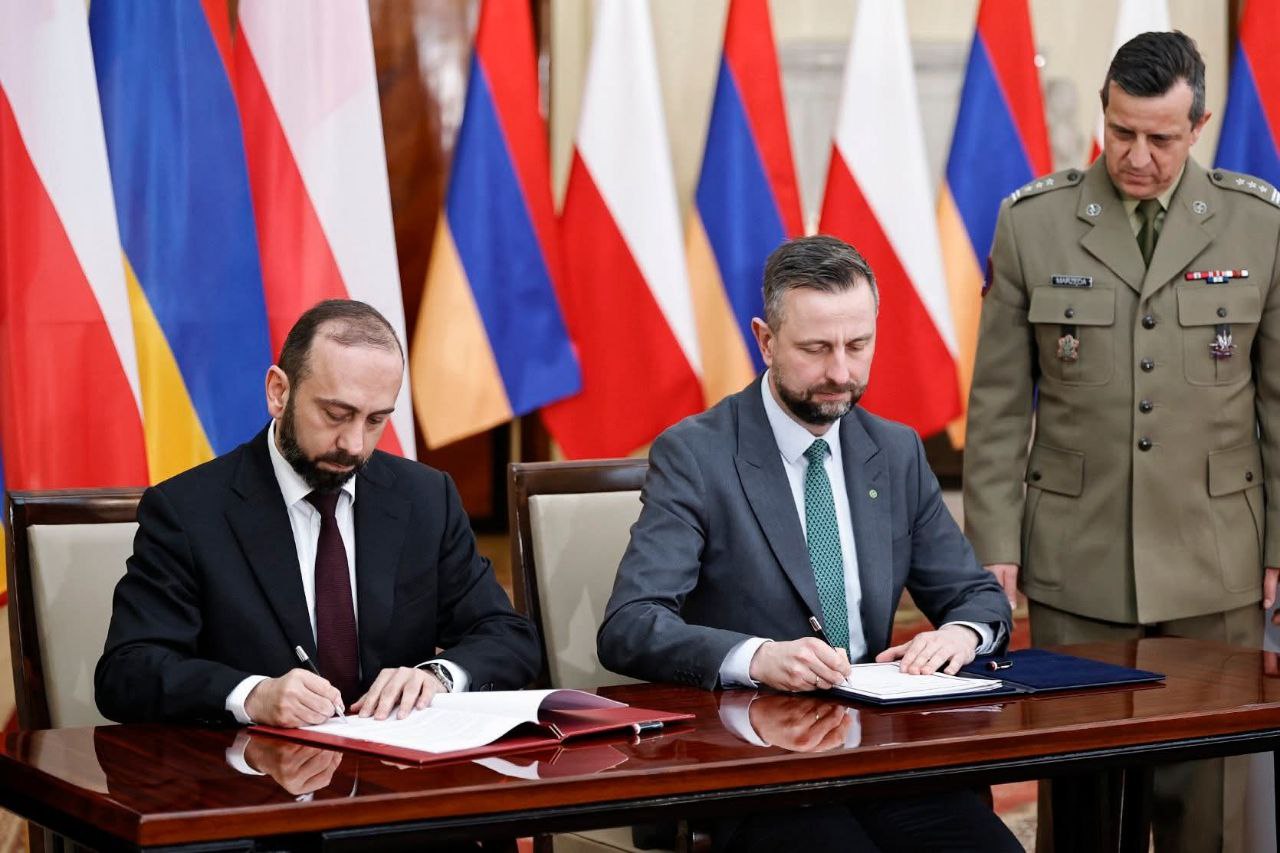"US will continue to participate in Minsk Group format" - US Assistant State Secretary in Yerevan
US Assistant Secretary of State in Yerevan
“Just because we are paying a lot of attention to the Russian-Ukrainian war does not mean that we are not paying attention to other issues”, the US Assistant Secretary of State for European and Eurasian Affairs Karen Donfried said in Yerevan.
In an exclusive interview with Radio “Azatutyun” (Liberty), she addressed the Armenian-Azerbaijani dialogue and the settlement of the Nagorno-Karabakh conflict. Donfried assured that France, the US and Russia will continue to cooperate within the OSCE Minsk Group, “despite any obstacles.”
Karen Donfried refers to the main format for the settlement of the Karabakh conflict – under the co-chairmanship of the United States, France and Russia. This negotiation format was in effect until the 2020 war. Then, Azerbaijan stated that it had resolved the conflict by military means, therefore, there was nothing more for the Minsk Group to do. Armenia insists on continuing negotiations with Azerbaijan through the mediation of the OSCE Minsk Group. However, after the Ukrainian war, in the light of disagreements between the co-chairing countries, many believe that it will be impossible.
As part of her visit to the region, Donfried arrived in Armenia after negotiations in Georgia and Azerbaijan.
- Op-ed: “Azerbaijan is using Russia-West confrontation”
- Russia vs West in South Caucasus – Opinion from Armenia
- PM Pashinyan: “Any alternative to peace will be disastrous – both for NK and Armenia”
“Key role of the United States”
In Yerevan, Donfried met with the Prime Minister of Armenia, the Minister of Foreign Affairs and the Secretary of the Security Council.
The Prime Minister of Armenia “highly appreciated the US assistance to the Armenian government in effectively promoting democratic reforms.” In response, Donfried assured that this support would continue in the future.
Nikol Pashinyan and US Deputy Secretary of State also discussed the processes taking place in the region, the settlement of the Nagorno-Karabakh conflict, and the activities of the commission for delimiting the borders between Armenia and Azerbaijan.
“The Prime Minister emphasized the need to strengthen stability and peace in the region, and the need for an adequate response from the international community to [Azerbaijan’s] provocative statements and actions that undermine regional stability”, the press service of the Armenian government said.
Both the Prime Minister and the Minister of Foreign Affairs spoke with Karen Donfried about the role of the OSCE Minsk Group in the settlement of the Nagorno-Karabakh conflict.
The Minister of Foreign Affairs and the Secretary of the Security Council of Armenia presented to Donfried the process of normalizing relations with Azerbaijan, the details of negotiations on unblocking economic and transport communications in the region.
The consequences of the second Karabakh war were also discussed. Foreign Minister Ararat Mirzoyan addressed humanitarian problems of the post-war period. In particular, he spoke about the need for the immediate release and repatriation of Armenian prisoners of war still held in Azerbaijan.
“There is room for reconciliation”
In her interview in Yerevan, the US Assistant Secretary of State stated that the United States is ready to support the process of reconciliation between Armenia and Azerbaijan.
“I want to make it clear that as important as our support for Ukraine is, and we have paid a lot of attention to this conflict in recent months, this does not mean that we are not paying attention to other issues, other parts of Europe.
And I hope that my visit is a very weighty confirmation of this. The situation in the South Caucasus is very important. I think there are opportunities here. Above all, you Armenians must work with your neighbors to try and advance the reconciliation agenda. But I want to make it clear that the United States is involved and ready to help”, she said.
Donfried did not want to comment on Pashinyan’s statement about “lowering the bar” on the status of Nagorno-Karabakh:
“Better ask him what he meant. But I see that there is a dialogue between Armenia and Azerbaijan, which, I hope, will lead to a settlement of the situation in Nagorno-Karabakh”.
The prime minister made a “lowering the bar” remark in April. This sparked a wave of outrage and gave rise to the long-term series of protests of the parliamentary opposition, demanding Pashinyan’s resignation. The oppositionists, as well as the leadership of the unrecognized NKR, have since repeatedly stated that “Nagorno-Karabakh cannot be part of Azerbaijan”, since the statement of the Prime Minister of Armenia was perceived as a “betrayal” and “transfer of NK to Azerbaijan”.
This question is so painfully perceived in Armenia that analysts commented on this very fragment of Karen Donfried’s interview. In particular, according to political scientist Suren Surenyants, she “tactfully made it clear that Pashinyan’s statement should be followed by the “ears” of Moscow, not Washington”.
The Assistant Secretary of State stressed that the United States supports the settlement of the Karabakh conflict in the format of the OSCE Minsk Group, this process did not stop amid the Russian-Ukrainian war. She also stated that the United States was ready to continue working in this format in cooperation with Russia:
“We support the process of co-chairing the Minsk Group. We still believe that this is a very important format, especially in the Nagorno-Karabakh issue. And it’s important that we keep different formats to keep the peace. We will continue to do so in the future.
Yes, Azerbaijan does not support the processes within the co-chairmanship of the Minsk Group. And the United States supports it, we are involved in this process, we are participating in it and we will be participating”.
Donfried did not specify whether she spoke with Ilham Aliyev about his statements regarding the termination of the Minsk Group. She only said that she discussed the issue of the OSCE Minsk Group with the President of Azerbaijan.
The US Assistant Secretary of State in Yerevan




















